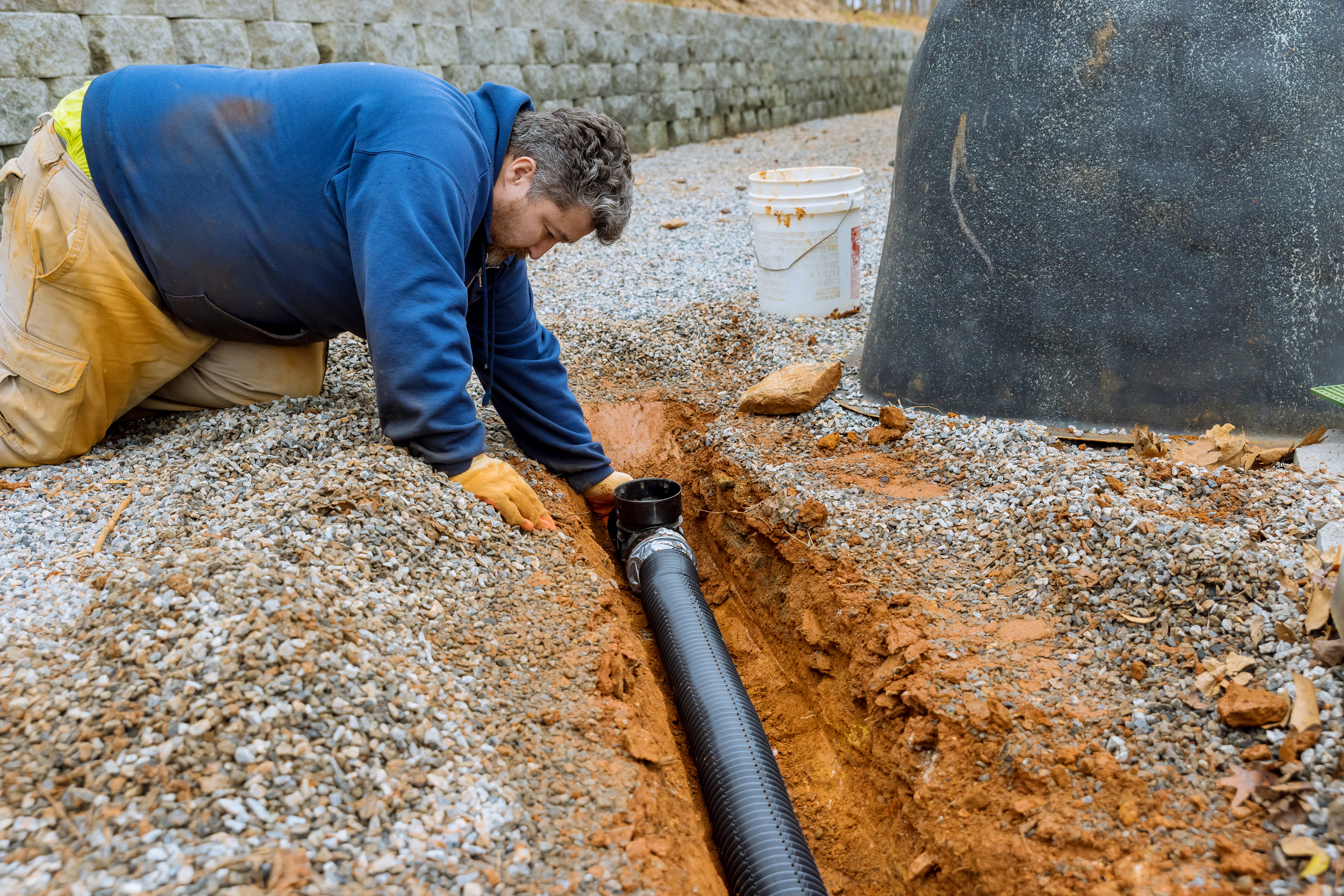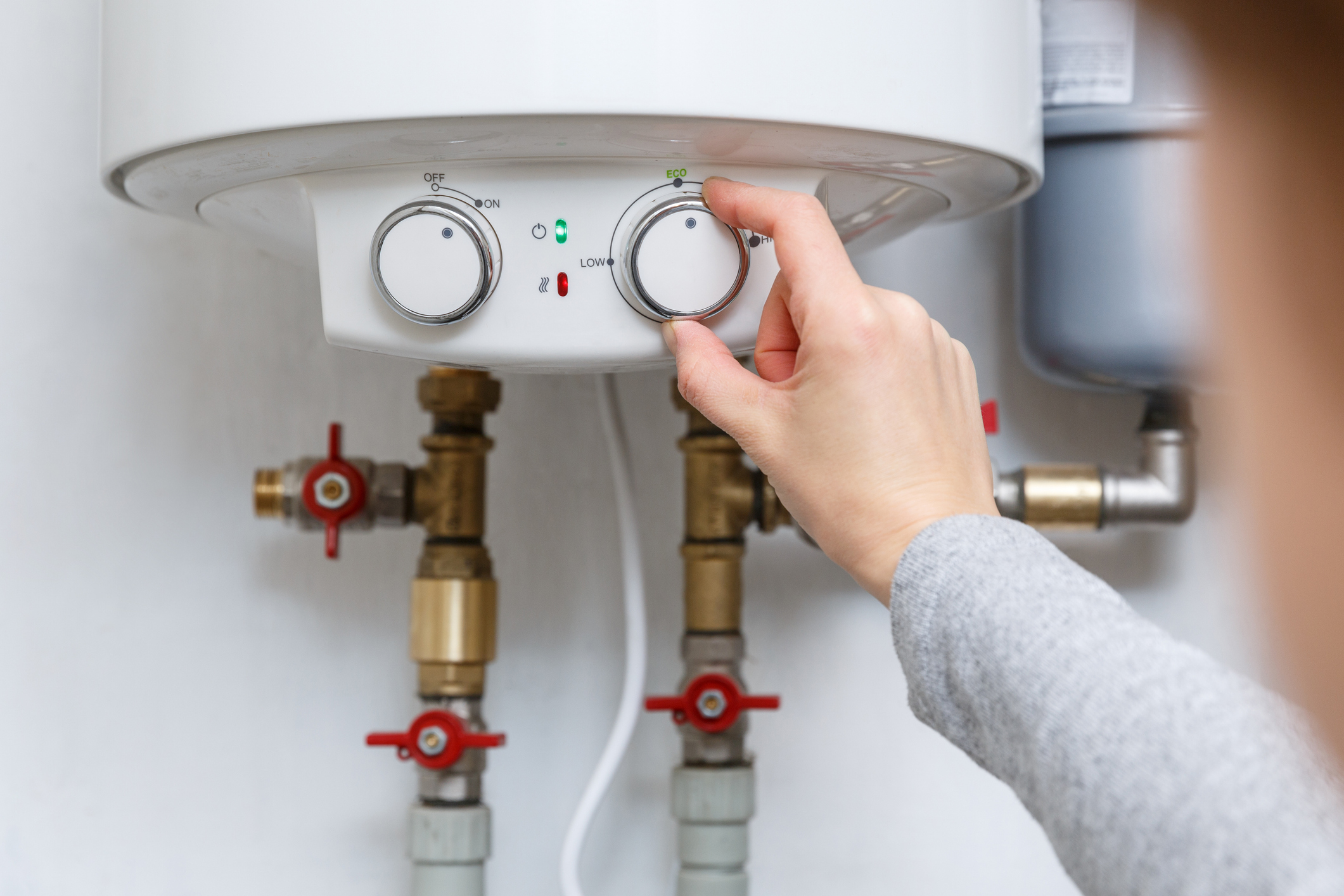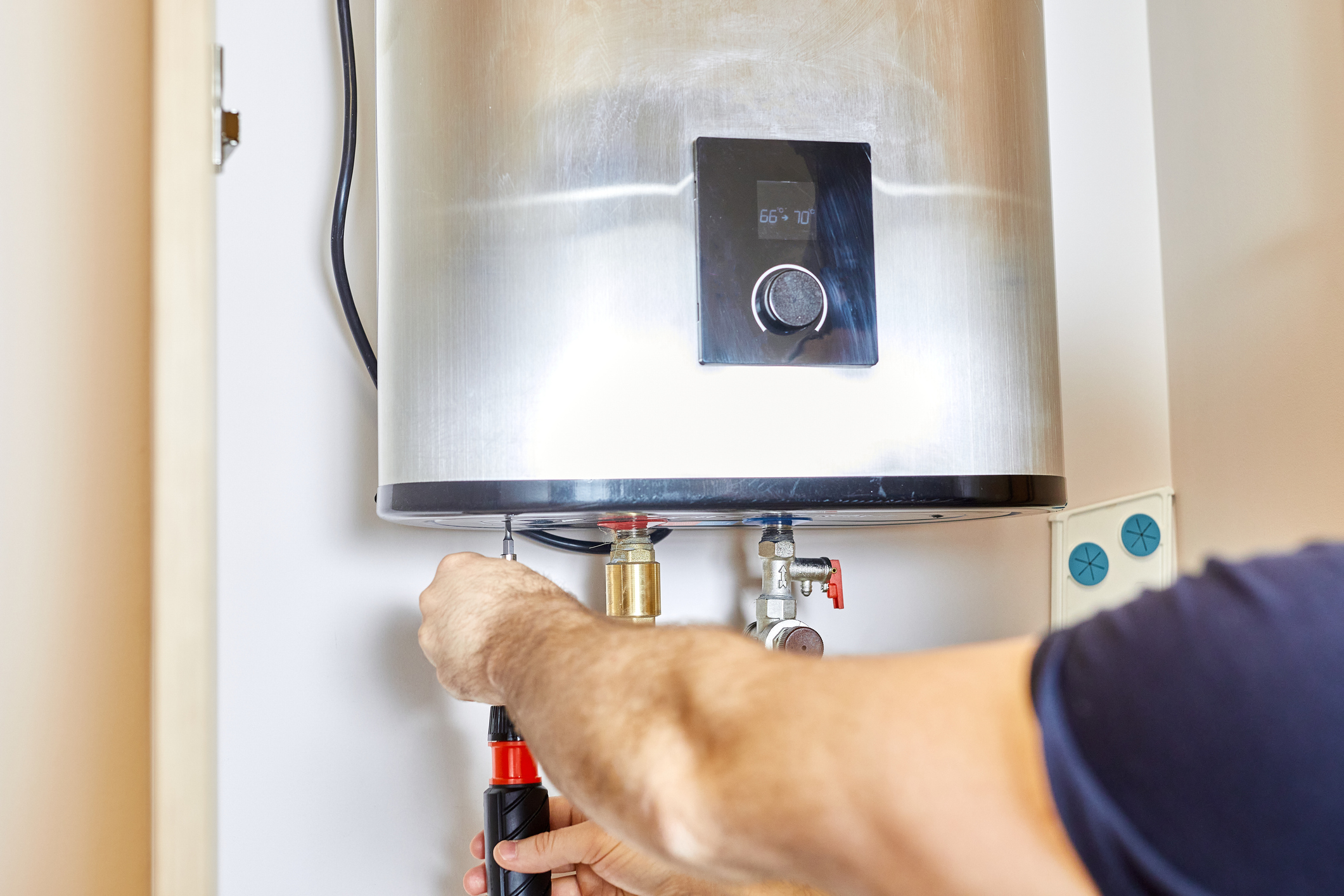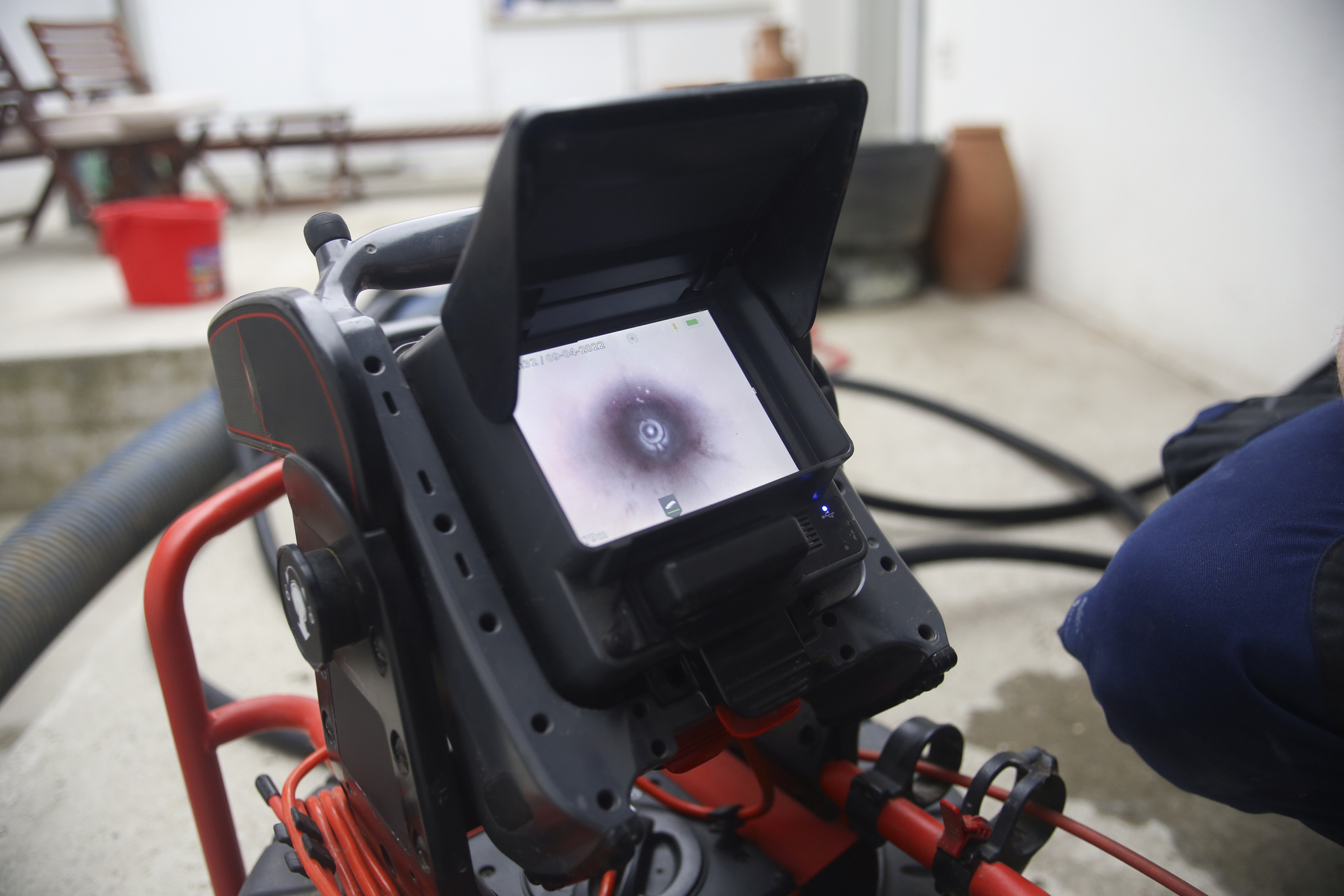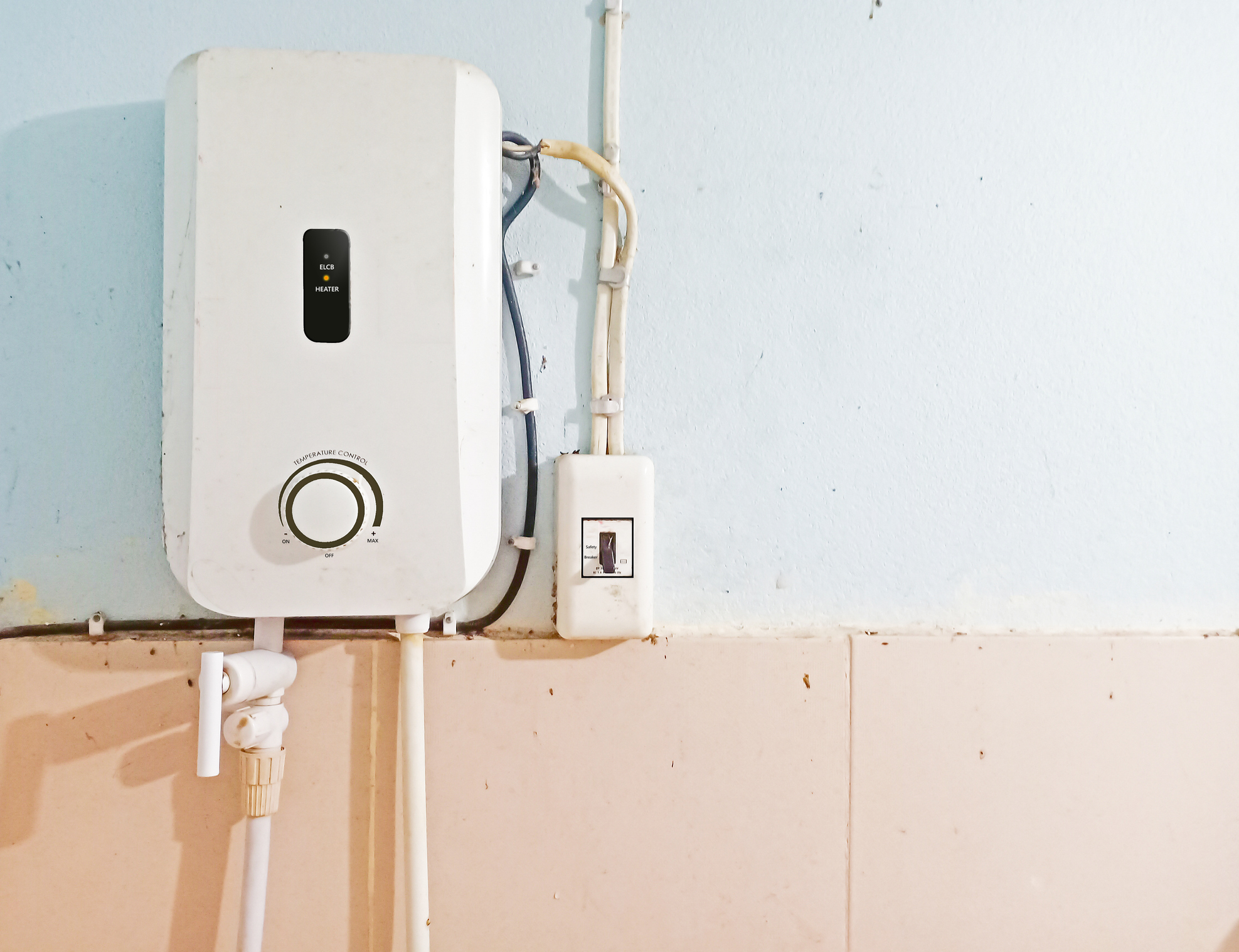FAQ to Calgary Plumbers & HVAC Experts
FAQ to Calgary Plumbers & HVAC Experts
Welcome to the FAQ page of ClearView Services, your trusted source for plumbing, heating, and cooling solutions in Calgary. As experienced plumbers and HVAC experts, we are dedicated to providing you with reliable information and expert guidance. Here, you will find answers to frequently asked questions about a wide range of topics related to plumbing, heating, air conditioning, and more. Whether you have questions about common plumbing issues, HVAC maintenance, or energy-efficient solutions, we have you covered. Our team of skilled professionals brings years of expertise and a commitment to exceptional service. We understand the importance of clear and concise information when it comes to your home’s comfort and safety. We strive to be your go-to resource for all your plumbing and HVAC needs. Browse through our FAQ section to find answers to your most pressing questions. If you don’t see what you’re looking for, feel free to reach out to our knowledgeable Calgary plumbers and HVAC experts for personalized assistance.”
It is important to contact a plumber in various situations to address plumbing issues promptly and prevent further damage. Here are some instances when it is advisable to reach out to a professional plumber:
- Plumbing Emergencies: Burst pipes, major leaks, overflowing toilets, or sewage backups require immediate attention from a plumber to minimize water damage and restore functionality.
- Persistent Clogs: If you are experiencing recurring or stubborn clogs in sinks, toilets, or drains that cannot be resolved with DIY methods, a plumber can identify the underlying cause and provide effective solutions.
- Water Heater Problems: Issues with your water heater, such as inadequate hot water, strange noises, leaks, or a complete lack of hot water, should be addressed by a plumber to ensure proper functioning and safety.
- Low Water Pressure: If you notice a significant decrease in water pressure throughout your home, it may indicate an issue with the plumbing system that requires professional assessment and repair.
- Plumbing Installations and Upgrades: When installing new fixtures, replacing pipes, or upgrading your plumbing system, a plumber can ensure proper installation, code compliance, and optimal performance.
- Plumbing Maintenance: Regular plumbing maintenance, such as drain cleaning, inspections, and leak detection, can be performed by a plumber to prevent future issues and prolong the lifespan of your plumbing system.
It is generally recommended to contact a licensed and reputable plumber for any plumbing concerns. Their expertise, specialized tools, and experience will help diagnose and resolve problems efficiently and effectively.
To effectively dissolve hair in a drain, there are several options you can consider. Here are a few common methods:
- Baking Soda and Vinegar: Start by pouring a cup of baking soda down the drain, followed by a cup of vinegar. Allow the mixture to fizz for about 15 minutes, and then flush it with hot water. This combination can help break down hair and other organic matter.
- Chemical Drain Cleaners: Commercial drain cleaners specifically designed to dissolve hair can be effective. Be sure to follow the instructions carefully and use them sparingly, as they can be harsh on pipes and the environment.
- Enzyme Cleaners: Enzyme-based drain cleaners are a more environmentally friendly option. These cleaners contain enzymes that break down organic materials, including hair. Follow the product instructions for best results.
- Drain Snake or Auger: For stubborn hair clogs, using a drain snake or auger can physically remove the hair from the drain. Insert the tool into the drain and rotate or push it through to dislodge the hair.
Remember, prevention is key in avoiding hair clogs. Regularly using drain guards or screens to catch hair before it enters the drain can help minimize future clogs.
Hydro jetting is a highly effective method for clearing stubborn blockages and cleaning sewer lines, but it can be more expensive compared to other drain cleaning methods. Several factors contribute to the higher cost of hydro jetting:
- Specialized Equipment: Hydro jetting requires specialized equipment, including high-pressure water jetting machines and various nozzles. The cost of purchasing, maintaining, and operating this equipment is reflected in the overall service cost.
- Skill and Expertise: Hydro jetting is a technique that requires skill and expertise to ensure its safe and effective use. Licensed plumbers or technicians with specific training and knowledge are required to operate the equipment properly.
- Efficiency and Effectiveness: Hydro jetting provides thorough cleaning by removing even the most stubborn obstructions and buildup. Its high-pressure water stream can clear grease, tree roots, mineral deposits, and other debris effectively. The added effectiveness and efficiency contribute to the higher cost compared to other methods that may be less thorough or require more frequent treatments.
- Safety Considerations: Hydro jetting involves working with high-pressure water, which can be dangerous if not handled properly. The cost includes ensuring the safety of the technicians and complying with safety regulations.
While hydro jetting may be more expensive upfront, it is often a long-term solution that helps prevent recurring blockages and costly repairs. Consulting with a professional plumber can help determine if hydro jetting is necessary and provide a cost estimate based on your specific situation.
The lifespan of a hot water tank can vary depending on several factors, including the type of tank, water quality, maintenance, and usage patterns. On average, traditional tank-style water heaters have a lifespan of about 8 to 12 years.
The longevity of a hot water tank can be influenced by its construction materials, such as the tank itself and the heating elements. Tanks made of high-quality materials and with proper insulation tend to last longer.
Water quality is another important factor. Hard water with high mineral content can accelerate the buildup of sediment and mineral deposits inside the tank, potentially shortening its lifespan. Regular maintenance, such as flushing the tank and checking the anode rod, can help extend its life.
Usage patterns also play a role. A larger household with higher hot water demands may put more strain on the tank, potentially reducing its lifespan.
It’s important to monitor the performance of your hot water tank, watch for signs of deterioration or inefficiency, and consider replacing it if it shows signs of aging or if it no longer meets your hot water needs. Consulting with a professional plumber can provide guidance based on your specific circumstances.
There are several ways you can save money on plumbing repairs while ensuring the longevity and efficiency of your plumbing system. Here are some tips:
- Regular Maintenance: Perform routine maintenance tasks like checking for leaks, cleaning drains, and inspecting plumbing fixtures. This can help identify small issues early on, preventing them from becoming costly repairs.
- Address Issues Promptly: Don’t ignore plumbing problems, as they can worsen over time. Addressing issues promptly can prevent further damage and save you from more expensive repairs down the line.
- DIY When Appropriate: Minor repairs and maintenance tasks can often be done by homeowners, such as replacing washers, unclogging drains, or tightening connections. However, be cautious and know your limitations. Attempting complex repairs without the necessary expertise can lead to more expensive problems.
- Water Conservation: Implement water-saving practices like using low-flow fixtures, fixing leaky faucets promptly, and being mindful of water usage. This not only helps the environment but also reduces your water bills.
- Research and Compare: When hiring a plumber, obtain multiple quotes and compare prices. Look for reputable professionals who offer fair pricing and quality service.
Remember, while saving money is important, it’s crucial to prioritize the expertise and reliability of a plumber. Hiring a licensed and experienced professional ensures the job is done correctly, preventing future expenses and complications.
A sewer backup refers to the situation when wastewater from the sewer system flows back into your property instead of being carried away. It can be a distressing and potentially hazardous problem that requires immediate attention.
Several factors can cause sewer backups, including clogged or damaged sewer lines, tree root infiltration, heavy rainfall, or problems within the municipal sewer system. When a backup occurs, wastewater can enter your home through drains, toilets, or basement floor drains.
Sewer backups pose health risks as they may contain harmful bacteria, viruses, and other contaminants. They can cause property damage, including water damage, foul odors, and potential mold growth.
If you experience a sewer backup, it’s crucial to prioritize your safety and contact a professional plumber as soon as possible. They can assess the situation, identify the cause of the backup, and take appropriate measures to resolve the issue, such as clearing blockages, repairing damaged pipes, or installing preventive measures like backwater valves.
Taking preventive measures, such as regular sewer line maintenance and avoiding flushing inappropriate items down drains, can help reduce the risk of sewer backups.
Fixing a broken sewer pipe under your house typically requires professional assistance due to the complexity and potential challenges involved. Here’s an overview of the steps involved in repairing a broken sewer pipe:
- Assessment and Inspection: A licensed plumber will perform a thorough inspection using specialized equipment such as sewer cameras to locate the exact location and extent of the pipe damage.
- Excavation: In some cases, accessing the broken sewer pipe may require excavation beneath the house’s foundation or flooring. This process requires expertise and care to avoid further damage.
- Pipe Repair or Replacement: Depending on the severity of the damage, the plumber will determine whether the pipe can be repaired or if replacement is necessary. Options may include pipe relining, where a new lining is inserted into the existing pipe, or complete pipe replacement.
- Installation and Testing: The plumber will install the repaired or new pipe and ensure proper connections. A pressure test may be conducted to verify that the repaired section is functioning correctly.
- Backfill and Restoration: Once the repair is complete, the excavation area is backfilled, and any affected flooring or structures are restored to their original condition.
It’s essential to consult with a qualified and experienced plumber to assess the specific situation and determine the most suitable repair method for your broken sewer pipe.
In plumbing, a smoke test is a method used to identify leaks or faults in a plumbing system by introducing smoke into the pipes and observing where it escapes. The smoke used in these tests is typically created from a non-toxic, artificially produced smoke fluid or tablets designed specifically for plumbing smoke testing.
The smoke fluid or tablets are placed into a smoke machine or smoke blower, which heats the fluid or tablets to produce a dense, white smoke. The smoke is then forced into the plumbing system through an access point, such as a cleanout or roof vent.
As the smoke travels through the plumbing system, it will emerge from any leaks, cracks, faulty seals, or other openings, making them visible to the tester. This allows them to pinpoint the location of the problem areas and make the necessary repairs or adjustments.
It’s important to note that the smoke used in plumbing smoke tests is safe and non-toxic. However, it’s still advisable to take precautions and ventilate the area during and after the test to ensure the smoke dissipates properly.
While a tankless water heater can provide hot water for various household needs, it is not designed to be the sole energy source for running an entire house. Tankless water heaters are primarily meant to supply hot water on-demand, rather than generating heat for the entire home.
A tankless water heater can efficiently provide hot water for showers, faucets, and appliances like dishwashers and washing machines. However, it does not typically have the capacity to meet the heating demands of an entire house, such as powering radiators or baseboard heaters.
To effectively heat a home, a comprehensive heating system is required, which may include a separate boiler or furnace that utilizes a different energy source, such as natural gas, oil, or electricity. These systems are designed to generate heat for the entire house and distribute it through the various rooms.
A tankless water heater is an excellent choice for supplying hot water, it should not be relied upon as the sole source of heating for an entire house.
The decision to replace polybutylene pipes in your home depends on several factors. Polybutylene pipes were commonly used in residential plumbing systems between the late 1970s and mid-1990s. However, they have been associated with potential issues, including a higher risk of leaks and failures due to deterioration and the potential for chemical reactions with water disinfectants.
If your home has polybutylene pipes, it is advisable to consider the following:
- Age and Condition: Evaluate the age and condition of your polybutylene pipes. If they are approaching or have exceeded their expected lifespan, or if you have experienced leaks or other issues, it may be wise to consider replacement.
- Insurance and Resale Value: Some insurance companies may have restrictions or limitations on coverage for homes with polybutylene pipes. Additionally, potential buyers may request or expect the pipes to be replaced, which could affect the resale value of your home.
- Peace of Mind: If you have concerns about the reliability and potential risks associated with polybutylene pipes, replacing them can provide peace of mind and reduce the likelihood of future problems.
Consulting with a professional plumber is crucial to assess the condition of your pipes and determine the best course of action. They can provide an expert opinion and guidance tailored to your specific situation.
An HVAC tune-up, also known as HVAC maintenance or a HVAC system check-up, is a service performed by a qualified HVAC technician to ensure the optimal performance and efficiency of your heating, ventilation, and air conditioning system. The specific tasks involved in an HVAC tune-up can vary depending on the company or technician, but generally include:
- System Inspection: The technician will visually inspect all components of your HVAC system, including the air handler, condenser unit, ductwork, and thermostat, to check for any visible issues or signs of wear.
- Cleaning and Lubrication: The technician will clean or replace air filters, clean condenser coils, and lubricate moving parts as necessary to improve system efficiency and airflow.
- Electrical Component Check: Electrical connections, wiring, and controls will be inspected to ensure they are secure and functioning correctly.
- Refrigerant Check: The refrigerant levels will be checked, and if needed, topped up to ensure optimal cooling performance.
- System Testing: The technician will perform tests to evaluate system performance, such as measuring airflow, testing thermostat operation, and checking temperature differentials.
- Safety Check: Safety controls and features will be inspected to ensure they are functioning properly, such as checking for gas leaks, carbon monoxide levels (if applicable), and proper ventilation.
Regular HVAC tune-ups help identify and address minor issues before they turn into major problems, improving energy efficiency, extending the system’s lifespan, and ensuring optimal comfort. It is recommended to have HVAC tune-ups performed annually or as recommended by your HVAC manufacturer.
The best way to heat and cool your house depends on several factors, including your climate, budget, energy efficiency goals, and personal preferences. Here are some common heating and cooling options:
- Central HVAC System: A central heating, ventilation, and air conditioning (HVAC) system provides both heating and cooling through a network of ducts. It is a popular choice for whole-house temperature control, offering consistent comfort throughout the home.
- Heat Pump: A heat pump is an energy-efficient option that can both heat and cool your home. It transfers heat between the indoors and outdoors, depending on the season, providing efficient heating in winter and cooling in summer.
- Furnace and Air Conditioner: A furnace, typically powered by natural gas or electricity, provides heating, while a separate air conditioner cools the home. This setup allows for customizable heating and cooling solutions.
- Ductless Mini-Split System: Ductless mini-split systems offer individual room control without the need for ductwork. They consist of an outdoor unit connected to one or more indoor units, providing heating and cooling flexibility.
- Radiant Heating/Cooling: Radiant floor heating or cooling uses pipes or electric heating elements embedded in the floor or ceiling to provide efficient and comfortable heating or cooling.
The best solution depends on your specific needs and circumstances. Consulting with an HVAC professional can help you determine the most suitable heating and cooling system for your home. Factors such as energy efficiency, installation costs, and maintenance requirements should also be considered in the decision-making process.
If you want to improve the cooling efficiency of your AC in a room, here are some tips to consider:
- Clean or Replace Air Filters: Dirty or clogged air filters restrict airflow, reducing the cooling capacity. Clean or replace them regularly to ensure proper airflow.
- Seal Air Leaks: Check for any gaps or cracks around windows, doors, or vents and seal them with weatherstripping or caulking. This prevents warm air from entering the room and helps maintain cooler temperatures.
- Use Curtains or Blinds: Keep curtains or blinds closed during the day to block out direct sunlight, which can significantly heat up a room. Consider using light-colored or reflective window coverings to reduce heat absorption.
- Use Fans: Ceiling or portable fans can help circulate cool air, making the room feel more comfortable. The moving air helps enhance the cooling effect and distributes it evenly.
- Minimize Heat Sources: Avoid using heat-generating appliances, such as ovens or dryers, during the hottest parts of the day. They add heat to the room and make it harder for the AC to cool effectively.
- Maintain the AC System: Schedule regular maintenance for your AC system to ensure optimal performance. A professional technician can clean coils, check refrigerant levels, and identify any issues that may hinder cooling efficiency.
Implementing these strategies can help enhance the cooling performance of your AC system and create a more comfortable environment in your room.
No, portable air conditioners require venting to function effectively. Venting is necessary to exhaust hot air generated during the cooling process. Portable air conditioners typically come with a venting kit that includes an exhaust hose and a window installation kit.
The exhaust hose is connected to the portable AC unit and directed towards a window or an opening in the wall. This allows the hot air to be expelled outside while the AC unit cools the indoor air. The window installation kit helps seal the window opening to prevent hot air from re-entering the room.
While there are evaporative coolers or “swamp coolers” that don’t require venting, they work differently from traditional air conditioners. Evaporative coolers cool the air through the evaporation of water, but they add humidity to the air and are most effective in dry climates.
For efficient cooling, portable air conditioners require venting to remove hot air from the room.
There can be several reasons why your AC is not blowing cold air. Here are some common issues to consider:
- Dirty Air Filters: A clogged or dirty air filter restricts airflow, reducing the cooling capacity of your AC. Clean or replace the air filters regularly to ensure proper airflow.
- Refrigerant Leak: A refrigerant leak can cause a decline in cooling performance. If you suspect a leak, it’s best to have a professional HVAC technician inspect and repair the system.
- Condenser Unit Issues: The condenser unit, located outside, may be dirty, blocked, or damaged. Ensure the unit is clean and free of debris. If you notice any issues, consult a professional for proper diagnosis and repair.
- Thermostat Settings: Check the thermostat settings to ensure it is set to “cool” mode and the temperature is set lower than the current room temperature.
- Faulty Compressor or Fan: A malfunctioning compressor or fan can hinder the cooling process. These components may require professional attention to diagnose and repair.
If you’re unable to identify or resolve the issue, it is recommended to contact a licensed HVAC technician who can diagnose and address the problem effectively.
The frequency of cleaning air ducts is contingent in many factors specific circumstances of your home. Here are some general guidelines:
- Regular Inspection: It’s advisable to have your air ducts inspected by a professional HVAC technician. They can assess the condition of the ductwork and recommend cleaning if necessary.
- Visible Contamination: If you notice visible signs of contamination in your air ducts, such as mold growth, excessive dust or debris buildup, or pest infestation, cleaning should be considered.
- Allergies or Respiratory Issues: If you or your household members suffer from allergies, asthma, or respiratory conditions, regular air duct cleaning may be beneficial in reducing indoor air pollutants.
- Renovation or Construction: If you’ve recently completed construction or renovation work in your home, it’s recommended to clean the air ducts afterward. Construction debris and dust can accumulate in the ductwork, affecting indoor air quality.
In general, air ducts should be cleaned every 3-5 years. However, it’s important to note that this can vary depending on factors such as climate, occupancy, pets, and overall indoor air quality. Consulting with an HVAC professional can help determine the appropriate cleaning frequency for your specific situation.
A humidifier is a device that adds moisture to the air in your home. It helps increase the humidity level, which is particularly beneficial in dry climates or during the winter when indoor air tends to be dry due to heating systems. Here’s what a humidifier does for you:
- Relieves Dryness: Dry air can cause discomfort, leading to dry skin, dry eyes, itchy throat, and nasal congestion. A humidifier adds moisture to the air, alleviating these symptoms and promoting overall comfort.
- Eases Respiratory Issues: Adding moisture to the air can help ease respiratory problems such as asthma, allergies, and sinus congestion. It helps keep the nasal passages and airways moist, making it easier to breathe.
- Prevents Dryness-Related Issues: Dry air can lead to various issues like chapped lips, dry and brittle hair, and irritated skin. Using a humidifier helps combat these problems by maintaining an optimal humidity level.
- Protects Furniture and Wood: Dry air can cause wood furniture, flooring, and musical instruments to shrink or crack. A humidifier helps prevent such damage by maintaining the moisture balance in the air.
- Improves Sleep: Adding moisture to the air can help relieve snoring, soothe dry throat, and improve overall sleep quality, promoting a more restful and comfortable night’s rest.
It’s important to monitor and maintain the humidity level within a comfortable range (around 30-50%) to avoid excessive moisture and potential mold or bacteria growth. Regular cleaning and maintenance of the humidifier are necessary to ensure its proper functioning and prevent any health risks.
Poor indoor air quality can have various negative effects on your health, comfort, and overall well-being. Here are some potential consequences of poor indoor air quality:
- Respiratory Issues: Breathing in pollutants, allergens, or irritants in the air can trigger or worsen respiratory problems such as asthma, allergies, coughing, wheezing, and respiratory infections.
- Allergic Reactions: Poor indoor air quality can lead to allergic reactions, including sneezing, itchy eyes, runny nose, and skin irritation.
- Fatigue and Discomfort: Exposure to pollutants in the air can cause fatigue, headaches, dizziness, and general discomfort, reducing productivity and overall quality of life.
- Aggravation of Existing Conditions: Individuals with pre-existing health conditions such as heart disease, lung disease, or compromised immune systems may experience worsened symptoms due to poor indoor air quality.
- Poor Sleep Quality: Breathing in polluted air can disrupt sleep patterns, leading to insufficient or poor-quality sleep, which can have a negative impact on overall health and well-being.
- Long-Term Health Effects: Prolonged exposure to indoor air pollutants may contribute to the development of chronic respiratory diseases, cardiovascular issues, and other long-term health conditions.
To improve indoor air quality, it is recommended to ensure proper ventilation, control humidity levels, regularly clean and maintain HVAC systems, use air purifiers or filters, and minimize sources of indoor pollution such as smoking, harsh cleaning chemicals, and VOC-emitting products. Consulting with an indoor air quality professional can provide further guidance and assistance in addressing specific concerns.
The most efficient way to heat your home depends on several factors, including your location, climate, energy costs, and the size and layout of your home. However, here are some of the most commonly efficient heating options:
- High-Efficiency Furnace: A high-efficiency gas furnace uses advanced technology to convert fuel into heat with minimal waste. Look for furnaces with high Annual Fuel Utilization Efficiency (AFUE) ratings for optimal efficiency.
- Heat Pumps: Heat pumps are highly efficient heating systems that extract heat from the outdoor air (air-source heat pumps) or the ground (geothermal heat pumps) and transfer it indoors. Heat pumps can also provide cooling in the summer, making them versatile and energy-efficient.
- Radiant Floor Heating: Radiant floor heating systems use water pipes or electric heating elements installed beneath the floor to provide efficient and even heat distribution. They are especially effective for heating specific areas or whole homes.
- Solar Heating: Solar heating systems utilize the sun’s energy to heat your home. They typically involve solar collectors or panels that absorb sunlight and transfer the heat to the home’s heating system.
- Zoned Heating: Zoned heating allows you to control the temperature in different areas or rooms of your home independently. This can help reduce energy waste by heating only the areas that are in use.
To determine the most efficient heating option for your home, it’s best to consult with an HVAC professional who can assess your specific needs, consider factors such as insulation, and recommend the most suitable and efficient heating solution.
Boilers and furnaces are two common heating systems with different operating principles. In terms of efficiency, both boilers and furnaces can be highly efficient if properly installed and maintained. Here are some points to consider:
- Efficiency Ratings: Boilers are typically rated using Annual Fuel Utilization Efficiency (AFUE), while furnaces use AFUE or Seasonal Energy Efficiency Ratio (SEER). High-efficiency boilers can achieve AFUE ratings of 90% or higher, while high-efficiency furnaces can achieve AFUE ratings of 95% or higher.
- Heat Distribution: Boilers use radiant heat through pipes or radiators, providing even heat distribution and minimizing heat loss. Furnaces distribute heat through forced air systems, which can experience some heat loss through ductwork.
- Heat Loss: Boilers are generally more efficient in terms of heat loss because they don’t rely on ductwork, which can experience air leaks and lose heat. However, well-insulated ductwork can mitigate this issue with furnaces.
- Application: Boilers are well-suited for homes with radiant floor heating systems, while furnaces are commonly used with forced-air systems that provide both heating and cooling.
The efficiency of a heating system depends on various factors, including proper sizing, installation quality, insulation, and regular maintenance. Consulting with an HVAC professional can help determine the most efficient heating system for your specific needs and optimize its performance.
A sewer backup refers to the situation when wastewater from the sewer system flows back into your property instead of being carried away. It can be a distressing and potentially hazardous problem that requires immediate attention.
Several factors can cause sewer backups, including clogged or damaged sewer lines, tree root infiltration, heavy rainfall, or problems within the municipal sewer system. When a backup occurs, wastewater can enter your home through drains, toilets, or basement floor drains.
Sewer backups pose health risks as they may contain harmful bacteria, viruses, and other contaminants. They can cause property damage, including water damage, foul odors, and potential mold growth.
If you experience a sewer backup, it’s crucial to prioritize your safety and contact a professional plumber as soon as possible. They can assess the situation, identify the cause of the backup, and take appropriate measures to resolve the issue, such as clearing blockages, repairing damaged pipes, or installing preventive measures like backwater valves.
Taking preventive measures, such as regular sewer line maintenance and avoiding flushing inappropriate items down drains, can help reduce the risk of sewer backups.
If your furnace is not producing heat, there could be several potential reasons for this issue. Here are some common causes to consider:
- Thermostat Settings: Ensure that your thermostat is set to “heat” mode and that the temperature is set higher than the current room temperature. Also, check that the thermostat has power and is functioning correctly.
- Power Supply: Verify that the furnace has power by checking the circuit breaker or fuse box. If the breaker has tripped or the fuse has blown, reset it or replace the fuse as necessary.
- Gas Supply: If you have a gas furnace, make sure that the gas supply is turned on. If you suspect a gas leak or smell gas, leave the area immediately and contact your gas utility provider or emergency services.
- Ignition or Pilot Light Issues: For gas furnaces, a faulty ignition system or a pilot light that has gone out can prevent the furnace from producing heat. Follow the manufacturer’s instructions to relight the pilot light or contact a professional for assistance.
- Clogged Air Filters: Dirty or clogged air filters can restrict airflow and cause the furnace to overheat, leading to a shut-off of the heat. Check and clean or replace the air filters if necessary.
- Malfunctioning Parts: Faulty components such as the blower motor, limit switch, gas valve, or flame sensor can prevent the furnace from producing heat. In such cases, it’s recommended to contact a qualified HVAC technician to diagnose and repair the issue.
If you are unable to determine the cause or resolve the problem on your own, it is best to contact a licensed HVAC technician to safely diagnose and address the issue with your furnace.
In plumbing, a smoke test is a method used to identify leaks or faults in a plumbing system by introducing smoke into the pipes and observing where it escapes. The smoke used in these tests is typically created from a non-toxic, artificially produced smoke fluid or tablets designed specifically for plumbing smoke testing.
The smoke fluid or tablets are placed into a smoke machine or smoke blower, which heats the fluid or tablets to produce a dense, white smoke. The smoke is then forced into the plumbing system through an access point, such as a cleanout or roof vent.
As the smoke travels through the plumbing system, it will emerge from any leaks, cracks, faulty seals, or other openings, making them visible to the tester. This allows them to pinpoint the location of the problem areas and make the necessary repairs or adjustments.
It’s important to note that the smoke used in plumbing smoke tests is safe and non-toxic. However, it’s still advisable to take precautions and ventilate the area during and after the test to ensure the smoke dissipates properly.
Regular furnace servicing is essential for maintaining its efficiency, performance, and safety. Here are some general guidelines for furnace servicing:
- Annual Maintenance: It is recommended to have your furnace serviced by a professional HVAC technician at least once a year. Ideally, schedule the maintenance before the heating season begins to ensure optimal performance.
- System Age: Older furnaces may require more frequent servicing, as they are more prone to wear and tear. If your furnace is over 10 years old, consider scheduling maintenance twice a year or as recommended by the manufacturer.
- Warranty Requirements: Check the manufacturer’s warranty for any specific servicing requirements. Some warranties may mandate annual maintenance to remain valid.
- Safety Considerations: Furnace servicing is crucial for identifying and addressing potential safety issues such as gas leaks, carbon monoxide leaks, or faulty electrical connections. Regular maintenance helps ensure the safe operation of your furnace.
- Efficiency and Performance: Routine servicing helps keep your furnace running efficiently, reducing energy consumption and potentially lowering utility costs. It can also detect and address any performance issues, ensuring consistent heat output.
Remember, these are general guidelines, and the frequency of furnace servicing can vary based on factors such as system age, usage, and manufacturer recommendations. Consulting with an HVAC professional can provide more specific guidance based on your furnace and individual needs.
Radiant heat can provide efficient and comfortable heating, but the cost to run it can vary depending on several factors. Here are some considerations:
- Energy Source: The cost of running radiant heat depends on the energy source used. Electric radiant heating tends to be more expensive to run compared to systems powered by natural gas or other fossil fuels.
- Insulation: Proper insulation in your home is crucial for maximizing the efficiency of radiant heat. Well-insulated spaces retain heat better, reducing the energy needed to maintain desired temperatures.
- Thermostat Settings: The temperature settings you choose and how you manage them can affect operating costs. Lowering the thermostat when you’re away or during times of lower activity can help save energy and reduce costs.
- Zoning and Controls: Radiant heat systems can be zoned, allowing you to heat specific areas as needed. Zoning helps avoid heating unused spaces, which can contribute to energy savings.
- System Efficiency: High-quality, properly installed radiant heat systems can be highly efficient, minimizing energy waste and reducing operating costs. It’s essential to invest in a well-designed system and ensure regular maintenance to maintain efficiency.
The cost to run radiant heat will depend on the specific circumstances of your home and usage patterns. Consulting with a qualified HVAC professional can provide a more accurate assessment of potential costs and energy savings based on your specific situation.










